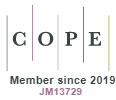Critical Learning and Reflective Practice through Studio-based Learning in Planning and Architecture Education
DOI:
https://doi.org/10.15415/cs.2015.31004Keywords:
Studio-based Learning, Experiential Learning, Planning Education, Critical PedagogyAbstract
Studio-based Learning is central to architecture and planning education. In terms of assessment and time spent, almost forty to fifty percent of the credits are devoted to the studios courses. Based on real life situations the Studio helps students synthesise various concepts in the process of finding solutions to complex problems. This paper attempts to connect the concepts of Experiential Learning, Reflective Practice and Critical Pedagogy to Studio-based Learning and, argues that, instead of being the ritualistic exercise it is currently perceived as, Studio-based Learning has an untapped potential to provide a transformative experience for the student. Such a transformative experience would include a re-examination of the current teacherstudent relationship, nature of studios as physical spaces, system of assessment and transformative nature of the studio exercise. Studio-based Learning
Downloads
References
[2] KOLB, A.Y. and KOLB, D.A. (2005) The Kolb Learning Style Inventory- Version 3.1. Available from: http://learningfromexperience.com/media/2010/08/tech_spec_lsi.pdf. [Accessed: 10 May 2015]
[3] KOLB, D.A. (1984) Experiential Learning: Experience As The Source Of Learning And Development. New Jersey: Prentice Hall.
[4] KOLB, D.A., BOYATZIS, R .E. and MAINEMELIS, C. (1999) Experiential Learning Theory: Previous Research and New Directions. Available from: http://www.d.umn.edu/~kgilbert/educ5165-731/Readings/experiential-learning-theory.pdf. [Accessed: 14 June 2015].
[5] KOLB. D. A. and FRY, R. (1975) Toward an Applied Theory of Experiential Learning, in COOPER, C.(ed.) Theories of Group Process. London: John Wiley.
[6] LACKNEY, J.A.(1999) History of Studio based model of learning. Available from: http://edi.msstate.edu/work/pdf/history_studio_based_learning.pdf. [Accessed: 20 May 2015].
[7] MATHEWS, J.A (2010) Using a studio-based pedagogy to engage students in the design of mobile-based media. English Teaching Practice and Critique. 9(1). p.87-102.
[8] PRAKASH, P. and MATHUR, M. (2007) Bridging the Gap between Education and Practice: An Approach to Teaching Zonal Plan Studio. Journal of the Institute of Town Planners India,4(3) p. 44-53.
[9] SCHON, D.A. (1982) Some of What a Planner Knows – a Case Study of Knowing in Practice. Journal of American Planners Association, 48(3). p. 351-364. http://dx.doi.org/10.1080/01944368208976184
[10] SCHON, D.A. (1983) The Reflective Practitioner: How Professionals Think in Action. USA: Basic Books.
[11] SHOR, I. AND FREIRE, P. (1987) What is the “Dialogical Method” of Teaching. Journal of Education, 169(3). p.11-31.
[12] SMITH, M. K. (2001, 2010). David A. Kolb on Experiential Learning. The Encyclopedia of Informal Education. Available from: http://infed.org/mobi/david-a-kolb-on-experientiallearning/. [Accessed: 14 June 2015].
[13] SMITH, M. K. (2001, 2011). Donald Schön: Learning, Reflection and Change. Available from: www.infed.org/thinkers/et-schon.htm. [Accessed: 16 June 2015].
[14] WAKS, L.J. (2001) Donal Schon’s Philosophy of Design and Design Education. International Journal of Technology and Design Education.11. p. 37–51.http://dx.doi.org/10.1023/A:1011265620608
Downloads
Published
Issue
Section
License
Articles in the Journal of Creative Space (Creat. Sp.) by Chitkara University Publications are Open Access articles that are published with licensed under a Creative Commons Attribution- CC-BY 4.0 International License. Based on a work at https://cs.chitkara.edu.in. This license permits one to use, remix, tweak and reproduction in any medium, even commercially provided one give credit for the original creation.
View Legal Code of the above-mentioned license, https://creativecommons.org/licenses/by/4.0/legalcode
View Licence Deed here https://creativecommons.org/licenses/by/4.0/
 |
Journal of Creative Space by Chitkara University Publications is licensed under a Creative Commons Attribution 4.0 International License. Based on a work at https://cs.chitkara.edu.in/ |







